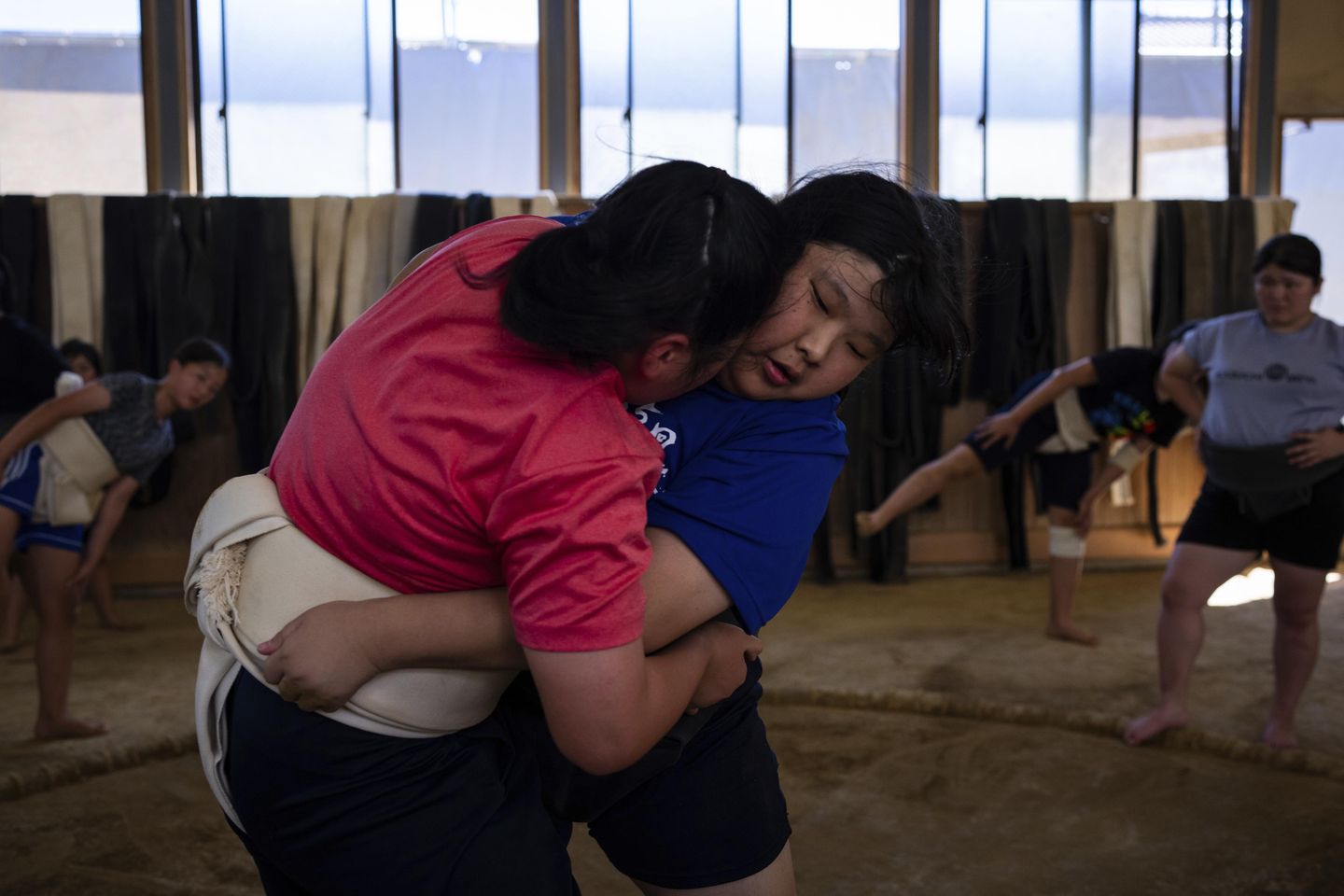
Don’t miss the full story, whose reporting from Reeno Hashimoto and Koji Ueda at The Associated Press is the basis of this AI-assisted article.
While professional sumo wrestling in Japan maintains its 1,500-year-old tradition of excluding women from the sacred ring, a growing movement of more than 600 female amateur wrestlers is challenging gender barriers and pushing for the sport’s inclusion in the Olympics.
Some key facts:
• Women remain barred from the traditional sumo ring (dohyō) in professional sumo, despite the sport’s 1,500-year history in Japan.
• More than 600 female amateur wrestlers (rikishi) are currently practicing sumo in Japan, representing a small but growing movement.
• Airi Hisano, considered Japan’s strongest female rikishi, weighs 115 kilograms and stands 1.72 meters tall (about 250 pounds, 5-feet-7) while working a day job at Tachihi Holdings.
• Rio Hasegawa became the first female to join the Keio University Sumo Club since its founding in 1919 and is the 2024 middleweight world champion.
• Female wrestlers compete wearing spandex shirts and bodysuits under their mawashi, unlike male wrestlers who compete bare-chested.
• Tottori Jōhoku High School hosts weeklong training camps that attract girls from across Japan to the nation’s largest girls’ sumo club.
• Government data shows more than 20% of Japanese women in their 20s and 30s are underweight, contrasting with female rikishi who seek to maintain or gain weight.
• Female sumo wrestlers often face teasing and bullying about their body size, with some driven to quit the sport or attempt dramatic weight loss.
READ MORE: Japanese women struggle to find a place in the Japanese sumo world
This article is written with the assistance of generative artificial intelligence based solely on Washington Times original reporting and wire services. For more information, please read our AI policy or contact Ann Wog, Managing Editor for Digital, at awog@washingtontimes.com
The Washington Times AI Ethics Newsroom Committee can be reached at aispotlight@washingtontimes.com.





![Gavin Newsom Threatens to 'Punch These Sons of B*thces in the Mouth' [WATCH]](https://www.right2024.com/wp-content/uploads/2025/08/Gavin-Newsom-Threatens-to-Punch-These-Sons-of-Bthces-in-350x250.jpg)
![ICE Arrests Illegal Alien Influencer During Her Livestream in Los Angeles: ‘You Bet We Did’ [WATCH]](https://www.right2024.com/wp-content/uploads/2025/08/ICE-Arrests-Illegal-Alien-Influencer-During-Her-Livestream-in-Los-350x250.jpg)








